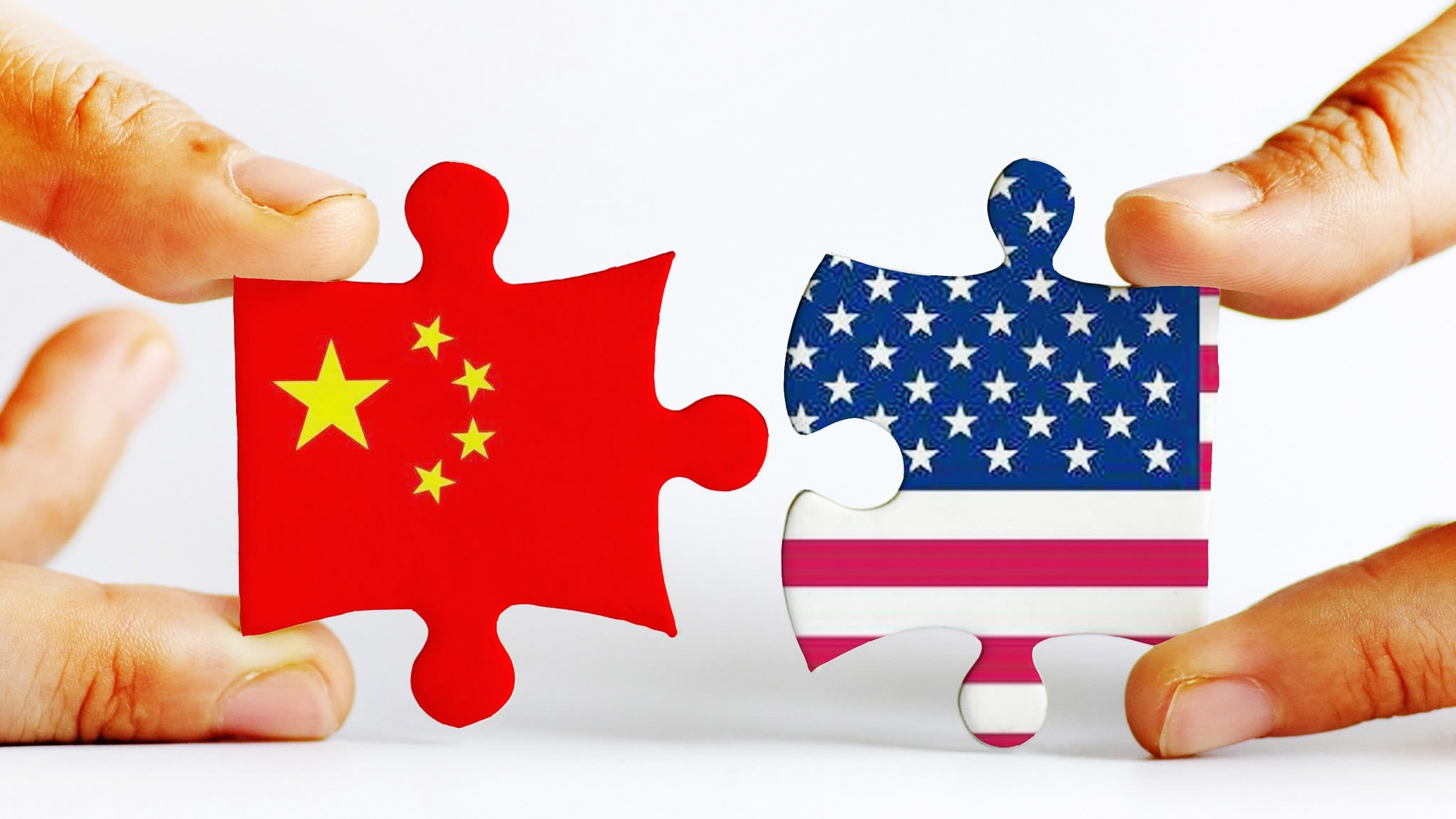
Editor's note: Iram Khan is a Pakistan-based commentator on international affairs. The article reflects the author's opinions, and not necessarily the views of CGTN.
China, the rising power of the 21st century, is unlike any of its contemporaries. It has established itself on the global economic and political stage neither by colonizing territories nor by exploiting disadvantaged nations. It rose to its feet purely by relying on its human capital and by modernizing its industry.
But this self-reliant rise makes some of its peers uncomfortable. Take the U.S. as an example. It perceives a threat from China out of ambiguous insecurities and has, therefore, opened a number of fronts. While creating a tumultuous trade atmosphere, it has also been trying to dictate how China should run its government.
For this purpose, some dubious elements have been employed by the U.S. Without having their backgrounds and credibility verified, they have been unleashed to carry out a global campaign of maligning China on farcical pretexts.
The intellectuals who follow a constructive approach to geopolitics urge collaboration between China and the U.S. in solving the problems faced by the world. They have distanced themselves from the anti-China rhetoric due to its sheer absurdity, leaving only shallow individuals toeing the White House line.
But, unfortunately, the U.S. is banking on deluded figures because its current foreign policy is being pushed by their likes. They gather any kind of exploitable material to launch smear campaigns, only to later realize they are standing on shaky ground. What is surprising, though, is that few in the Western media question the narrative peddled by Washington.
In the latest case, U.S. Secretary of State Mike Pompeo inflated a questionable report claiming China is trying to reduce the indigenous population in the Xinjiang Uygur Autonomous Region through abortions and sterilizations.
It is important to note that the accusation comes at a time when the Trump administration is under pressure over systemic racism that has left many Americans behind in terms of growth opportunities and quality of life. Seeing COVID-19 disproportionately affecting people of color and ethnic minorities, protesters have come out in unprecedented numbers to demand equality.
Although the demonstrations were triggered by the killing of a young black man, public sentiment – boiling due to a deep-seated discriminatory culture – had reached its tipping point during the pandemic.
Questioning China's treatment of minority groups the least suits the U.S. because of its dismal record of human indignity that continued well after the end of slavery. Moreover, the native Americans who are the legitimate heirs of "the land of the free" have seen their population drop from five million in 1492 to a mere 250,000 today.

A resident asks about the price of goods in Kashgar, northwest China's Xinjiang Uygur Autonomous Region, April 12, 2019. /VCG
A resident asks about the price of goods in Kashgar, northwest China's Xinjiang Uygur Autonomous Region, April 12, 2019. /VCG
The report Pompeo is building his case upon comes from a German researcher by the name of Adrian Zenz. Despite a history of irrational bias, Zenz has earned himself titles like "a leading expert" on Xinjiang and "a go-to source" for matters related to China.
Zenz's latest report is part of a series of concocted stories on Xinjiang that cite unverifiable sources and documents. While the Western media is devouring them as truth, perhaps it should run a check on his distorted worldview.
Adrian Zenz holds some fundamentalist beliefs that the media conveniently ignores owing to his continued provision of fodder for the anti-China sophistry. He remains insistently intolerant of all beliefs that differ from his assumptions, and equally censorious of China as it differs from his philosophies. The Wall Street Journal even quotes him as being "led by God" on the mission against China.
Had his concoctions against the Uygurs been right, their population wouldn't have increased from 5.55 million in 1978 to 11.68 million in 2018. Also, they wouldn't have formed nearly half of Xinjiang's population – that is, double the number of four decades ago.
The Uygur way of life was under a severe threat during the period from 1990 to 2016. Thousands of terrorist attacks resulted in the loss of precious lives. Since Zenz was not assigned his supposedly divine task at that time, he was looking away from the counterterrorism and deradicalization measures of the Chinese government.
Today there is a highly skilled Uygur population that forms a productive part of Chinese society while retaining its traditions, culture and values. With new employment and business prospects, the worst for people of Xinjiang is finally behind them.
In addition to governance ethos, China's foreign policy, too, contrasts with that of the U.S. While dealing with partners, China attempts to uphold their domestic priorities and supports their foreign interests wherever it can. And while dealing with those who consider it an adversary, China strives for settlement of differences rather than employing lobbyists with dubious credentials.
(If you want to contribute and have specific expertise, please contact us at opinions@cgtn.com.)